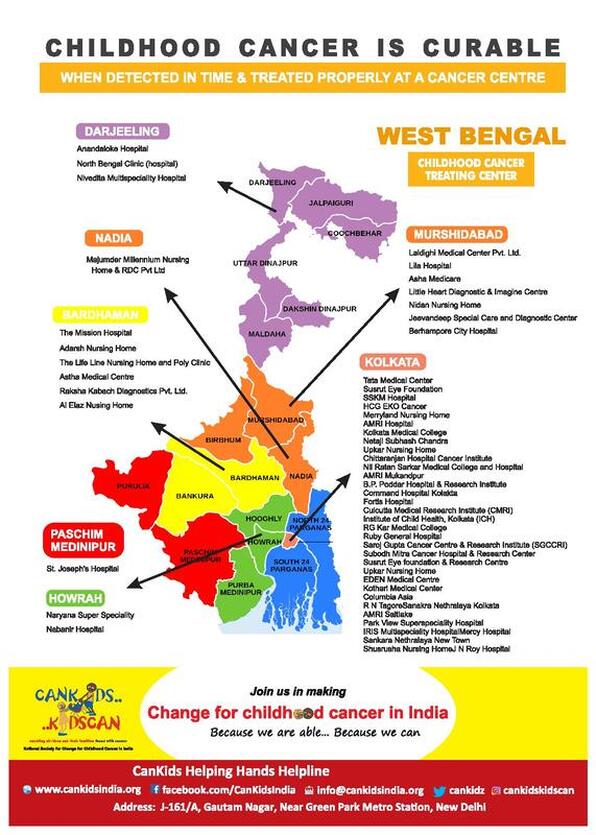The incidence of childhood cancer in West Bengal is 5265 each year as per the Geneva-based International Association of Cancer Registries (IACR). This makes it the 4th highest state after Uttar Pradesh, Bihar, and Maharashtra, accounting for 6.85% of the total incidence in India. Our extensive baseline studies indicate that 1,298 children with cancer are being treated at cancer centers in West Bengal, the largest number being treated at Kolkata at Nil Ratan Sarkar Hospital, Kolkata Medical College Hospital, and Tata Medical Center. We estimate that 73% children of West Bengal with cancer are not getting diagnosed or treated.
Board member and CanKids Hony. Regional Director East Mr. Mohit Aggarwal informed “We have had a presence in West Bengal since 2014. Since April 2019, our Team has mapped the state extensively, identifying 52 centers that may be treating kids with cancer. Our feasibility studies have led to decision to strengthen delivery of childhood cancer at 29 of those centers over next 5 years. With this MoU in place we can work closely with the Government. We aim to work with other partners and state players including Govt, Trust and private Hospitals treating children with cancer to ensure better Access and Quality of Care with higher survival rates and positive outcomes.
We are grateful for the support of our CSR and other donor partners over the years to make Change for Childhood Cancer in West Bengal, key among whom have
been the Jiv Daya Foundation, Century Ply Ltd., HDFC Life, Airports Authority of India, the HT Parekh Foundation, J. Thomas, Warren Tea, Surekha Builders, and CONCOR.


